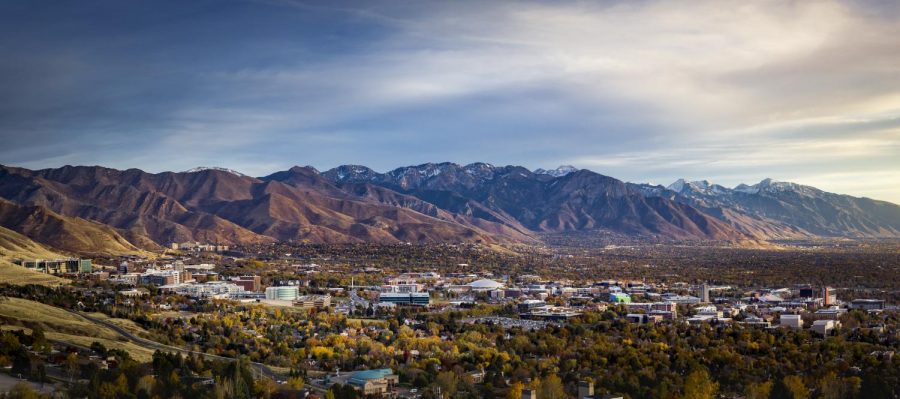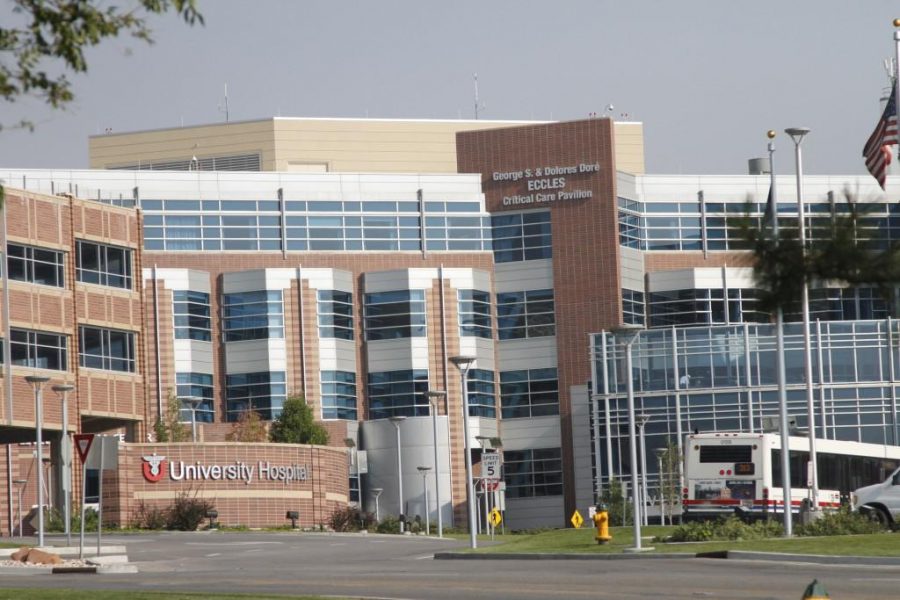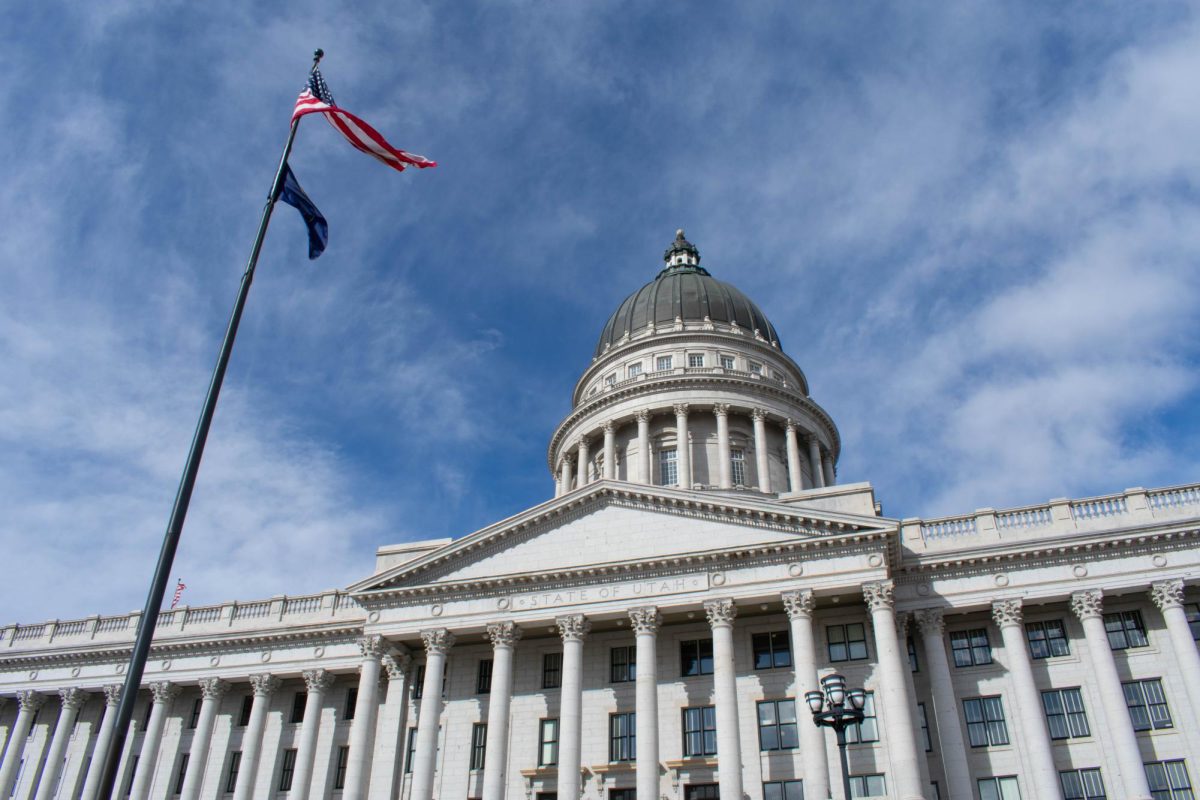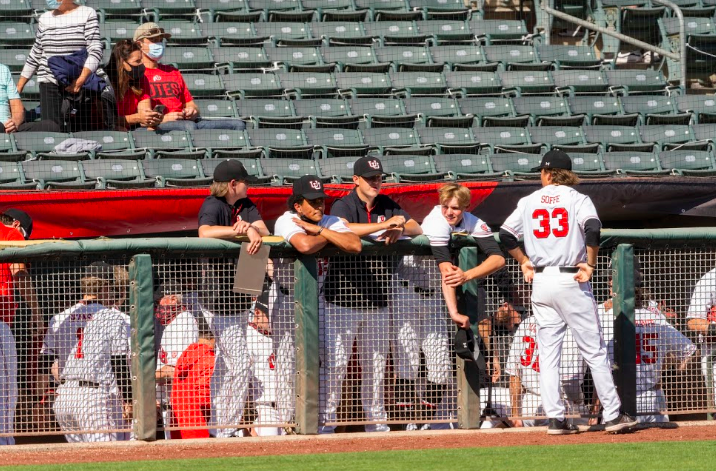Poma: The U Cannot Safely Open for Fall Semester
June 5, 2020
Since March, students have been anxiously speculating about what universities will do come fall semester – and on May 25, the University of Utah announced that in-person classes will resume in August. The school will adhere to applicable health guidelines and take necessary precautions once the fall semester begins, but even with social distancing, different class options and other safety measures, the threat of a resurgence of the virus still looms. The U should reconsider keeping most classes online, even with this new plan. As much as we all wish we could be back on campus, it isn’t worth the risk.
The U issued a full plan for a return to campus on June 1st. Everyone will be required to wear a mask in all common areas. Classrooms will be organized to meet social distancing standards, with desks six feet apart and class sizes decreasing. And more courses will be offered as online/in-person hybrids or fully online. In other words, fall semester will be quite different from what students are used to – as Nelson emphasized, this will not be the “typical experience” of life at the U.
We all want things to return to normal, but with so much uncertainty and all of these restrictions, the school’s administration should consider whether the additional stress to faculty and students is worth the price we pay to attend in-person classes. This high-strung, hindered learning environment will still cost students the same amount of money as a normal semester. Though the U has confirmed they will not raise tuition until 2021, students are upset about the quality of learning they received this past spring, with no reduction or refund if they chose to withdraw because of circumstances related to the pandemic. The online switch surprised students and professors alike, and the obvious drop in quality has made many students reluctant to continue with online classes. But if the fall were to be online, professors might be better prepared for a proper course structure than they were in March.
As such, the U might consider a reduction in tuition for classes to remain online. Those with performing arts, lab sciences and similar majors could attend in person as needed and pay necessary fees accordingly. This debate comes with caveats, where many believe colleges need tuition to recuperate from the pandemic, especially given the costs of consistently testing every student, staff and faculty member for the virus to quarantine those who test positive. But if the U shuts down again in the fall, the financial losses sustained could also be serious. We need to carefully calculate what the lesser of two evils is here – tuition losses due to an online semester or another emergency shutdown – and act accordingly.
Some colleges, including the U, have decided to skip fall break and have everyone home by Thanksgiving to prevent a late fall or winter outbreak. However, a rushed semester on top of all the new guidelines could worsen mental health in students. Students have already undergone a massive loss of experiences over the past few months, from missed birthday celebrations to graduations and weddings, which have deeply impacted all of us. Further disrupting campus routines could exacerbate the sense of anxiety and loss that many of us are struggling with as is.
Campus crowds will be an easy target for COVID-19 in the likely event of a resurgence. The U has stated that they are forming a plan for when a student, staff or faculty member tests positive, and expect those who are sick to stay home or report any COVID-19 contact immediately. But students might not be diligent about adhering to preventive social distancing guidelines in their dorms and other non-instructional spaces in the first place. If they feel comfortable enough to return to campus, it seems likely they’ll ignore important precautions – and another mid-semester shutdown would make things no better than they were in the spring. We would lose even more experiences and have to further delay meaningful in-person contact in the classroom and with friends.
Even though the government is opening things up and allowing Utahns to gather in larger groups, the circumstances of the pandemic haven’t changed. We still don’t have widespread testing or a vaccine, so group gatherings aren’t safe even if Governor Herbert says they’re okay. As leaders have moved local health guidance systems to yellow in most Utah areas, we have already formed a new peak. On May 29, about 343 new cases were reported in a single day – the highest count Utah has had so far. This fact alone begs the question of whether returning to campus is truly safe – and quite frankly, it’s just too soon. When human lives are at stake, it’s better to be safe than sorry.
I admire and appreciate those who formed the plan for returning to campus and are continuing to monitor the situation. The U is currently in the orange phase, and has detailed protocol should Salt Lake City move to the “low risk” or “new normal” phase. Those efforts shouldn’t go unnoticed. But as painful as it might be, the U should strongly consider modifying its current fall semester goals. It does us no good to reopen just to shut down again — all while putting tens of thousands of students, faculty and staff at greater risk of contracting the virus. I want things to go back to normal too. Everyone does. But if students aren’t diligent or something else goes wrong, even a semi-normal fall semester could be catastrophic.












Cyan Larson • Jun 28, 2020 at 12:51 pm
Thank you for writing this. It is now later in the month and a resurgence is happening. It is obvious that the U doesn’t care about our lives and just wants our money. They are going to over work us as they are not giving any breaks. We can protest as students all we want about decisions made without our input, but ultimately the institution will try to protect itself.
I do not think it is necessarily that we will lose experiences, as we are experiencing different things right now in different ways; birthday parties can still happen virtually, etc. So we aren’t losing but rather having different experiences than what has been happening.
The U also doesn’t care about people with compromised immune systems or elderly students.